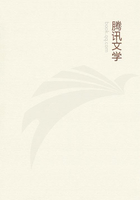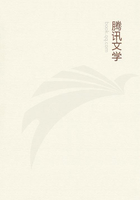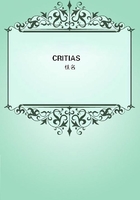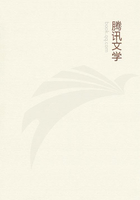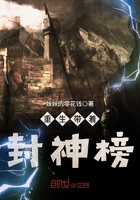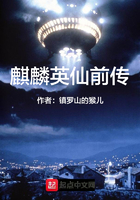This cult is the mythological inheritance of the whole eastern seaboard of Asia, from Siam to Kamtchatka. In Japan it is called Shintoism. The word "Shinto" means literally "the way of the gods," and the letter of its name is a true exponent of the spirit of the belief. For its scriptures are rather an itinerary of the gods' lives than a guide to that road by which man himself may attain to immortality. Thus with a certain fitness pilgrimages are its most noticeable rites. One cannot journey anywhere in the heart of Japan without meeting multitudes of these pilgrims, with their neat white leggings and their mushroom-like hats, nor rest at night at any inn that is not hung with countless little banners of the pilgrim associations, of which they all are members. Being a pilgrim there is equivalent to being a tourist here, only that to the excitement of doing the country is added a sustaining sense of the meritoriousness of the deed. Oftener than not the objective point of the devout is the summit of some noted mountain. For peaks are peculiarly sacred spots in the Shinto faith. The fact is perhaps an expression of man's instinctive desire to rise, as if the bodily act in some wise betokened the mental action. The shrine in so exalted a position is of the simplest: a rude hut, with or without the only distinctive emblems of the cult, a mirror typical of the god and the pendent gohei, or zigzag strips of paper, permanent votive offerings of man. As for the belief itself, it is but the deification of those natural elements which aboriginal man instinctively wonders at or fears, the sun, the moon, the thunder, the lightning, and the wind; all, in short, that he sees, hears, and feels, yet cannot comprehend. He clothes his terrors with forms which resemble the human, because he can conceive of nothing else that could cause the unexpected. But the awful shapes he conjures up have naught in common with himself. They are far too fearful to be followed.
Their way is the "highway of the gods," but no Jacob's ladder for wayward man.
In this externality to the human lies the reason that Shintoism and Buddhism can agree so well, and can both join with Confucianism in helping to form that happy family of faith which is so singular a feature of Far Eastern religious capability. It is not simply that the two contrive to live peaceably together; they are actually both of them implicitly believed by the same individual. Millions of Japanese are good Buddhists and good Shintoists at the same time.
That such a combination should be possible is due to the essential difference in the character of the two beliefs. The one is extrinsic, the other intrinsic, in its relations to the human soul.
Shintoism tells man but little about himself and his hereafter;Buddhism, little but about himself and what he may become. In examining Far Eastern religion, therefore, for personality, or the reverse, we may dismiss Shintoism as having no particular bearing upon the subject. The only effect it has is indirect in furthering the natural propensity of these people to an adoration of nature.
In Korea and in China, again, Confucianism is the great moral law, as by reflection it is to a certain extent in Japan. But that in its turn may be omitted in the present argument; inasmuch as Confucius taught confessedly and designedly only a system of morals, and religiously abstained from pronouncing any opinion whatever upon the character or the career of the human soul.
Taouism, the third great religion of China, resembles Shintoism to this extent, that it is a body of superstition, and not a form of philosophy. It undertakes to provide nostrums for spiritual ills, but is dumb as to the constitution of the soul for which it professes to prescribe. Its pills are to be swallowed unquestioningly by the patient, and are warranted to cure; and owing to the two great human frailties, fear and credulity, its practice is very large.
Possessing, however, no philosophic diploma, it is without the pale of the present discussion.
The demon-worship of Korea is a mild form of the same thing with the hierarchy left out, every man there being his own spiritual adviser.
An ordinary Korean is born with an innate belief in malevolent spirits, whom he accordingly propitiates from time to time. One of nobler birth propitiates only the spirits of his own ancestors.
We come, then, by a process of elimination to a consideration of Buddhism, the great philosophic faith of the whole Far East.
Not uncommonly in the courtyard of a Japanese temple, in the solemn half-light of the sombre firs, there stands a large stone basin, cut from a single block, and filled to the brim with water. The trees, the basin, and a few stone lanterns--so called from their form, and not their function, for they have votive pebbles where we should look for wicks--are the sole occupants of the place. Sheltered from the wind, withdrawn from sound, and only piously approached by man, this antechamber of the god seems the very abode of silence and rest.
It might be Nirvana itself, human entrance to an immortality like the god's within, so peaceful, so pervasive is its calm; and in its midst is the moss-covered monolith, holding in its embrace the little imprisoned pool of water. So still is the spot and so clear the liquid that you know the one only as the reflection of the other.
Mirrored in its glassy surface appears everything around it.
As you peer in, far down you see a tiny bit of sky, as deep as the blue is high above, across which slowly sail the passing clouds; then nearer stand the trees, arching overhead, as if bending to catch glimpses of themselves in that other world below; and then, nearer yet--yourself.
Emblem of the spirit of man is this little pool to Far Oriental eyes.

